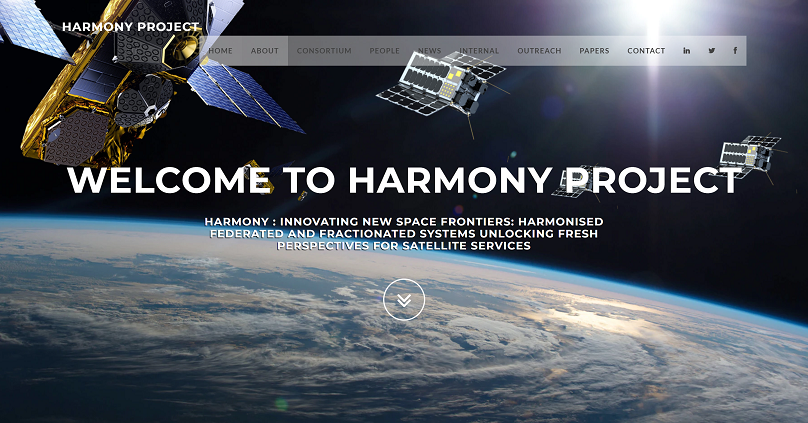
ABOUT HARMONY:
Part of the European Commission’s Horizon Europe Marie Skłodowska-Curie Actions (MSCA), the Industrial Doctorate programme HARMONY: Innovating New Space Frontiers: Harmonised Federated And Fractionated Systems Unlocking Fresh Perspectives For Satellite Services has opened an immediate opportunity for well-funded PhD positions in the area of space networks exploiting emerging constellations with focus on the underlying architectures, signal processing and antenna technologies. Structured around a major European satellite manufacturer (Thales Alenia Space), HARMONY comes as a follow-up to the REVOLVE project (https://revolve.eps.hw.ac.uk/), where 7 MSCA graduates developed cutting edge antenna technologies that have led to new products and approaches that have been adopted by the industry. A further success indicator for REVOLVE is that all 7 researchers were absorbed into the European space sector at the end of the project (4 in large integrators and 3 in SMEs).
The explosive demand for truly global fixed and mobile connectivity, navigation services, and climate monitoring, has in the past decade transformed our day to day use of space. Nowadays, a combination of recent technological innovations enabling higher level of digitisation, miniaturisation and reusability coupled with regulatory reform and the rapid commercialisation of space missions – a development often referred to as New Space – are driving rapid changes in the space sector. As the space infrastructure rapidly rumps up, the next disruptive evolution will manifestly come from the seamless and flexible integration of heterogenous spaceborne assets. A central piece of the 6G vision aims at integrating terrestrial and non-terrestrial networks in a single access architecture with sufficient flexibility, smartness and capacity to ensure truly global and reliable coverage as well as cost efficient rollout of services in the absence of costly optical fibres. Space systems have also unique features and heritage for numerous other services with transformative potential, e.g. Earth observation as well as position navigation and timing (PNT) that have traditionally been dominated by governmental investments and presently largely remain in silos. A primary driver of HARMONY is the removal of barriers across different space missions, services and actors in order to enable disruptive services that reach widely across societal needs and thereby complement the current 6G roadmaps. With the vision of fulfilling the New Space potential across diverse use cases, the aim of HARMONY is to underpin the broad harmonisation of spaceborne assets in a sustainable multi-mission ecosystem that will propel transformative innovation in services by exploiting the unique advantages of the space environment.
More information can be found here:
